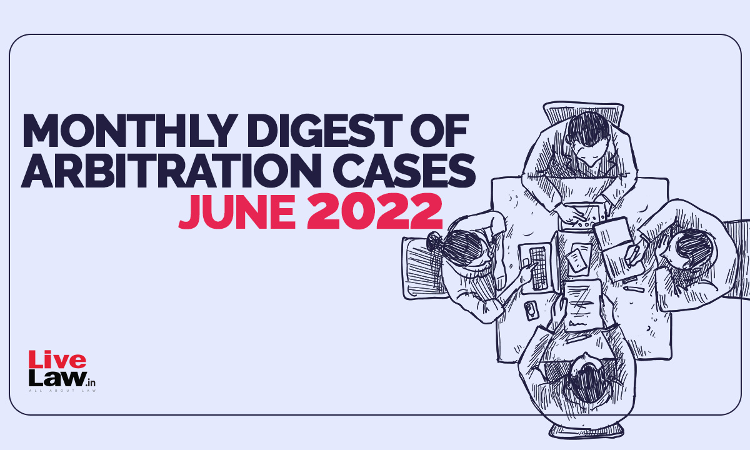- Home
- /
- News Updates
- /
- Monthly Digest Of Arbitration ...
Monthly Digest Of Arbitration Cases: June 2022
ausaf ayyub
2 July 2022 10:45 AM IST
Allahabad High Court Section 47 CPC Application Is Not Maintainable In Execution Proceedings Under Arbitration Act, 1940: Allahabad High Court Case Title: Bharat Pumps and Compressors versus Chopra Fabricators Citation: 2022 LiveLaw (AB) 269 The Allahabad High Court has held that an application under Section 47 of the CPC is not maintainable in the execution...
Next Story



